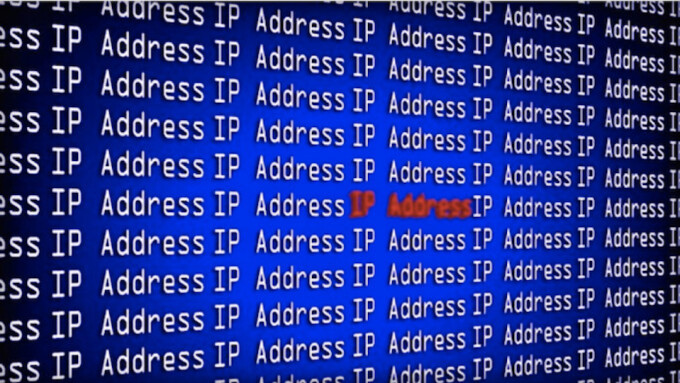NEW YORK — A New York judge authorized Strike 3 Holdings last week to serve an internet service provider with a subpoena in order to identify the individual associated with a specific assigned IP address that Strike 3 claims has been “downloading, copying and distributing” their copyrighted content using BitTorrent technology.
In an October 9 decision, Southern District of New York Magistrate Judge Barbara Moses granted Strike 3's application to serve a subpoena on Verizon Fios which would permit it to identify a John Doe subscriber by their name and address with a specifically assigned IP address.
Judge Moses granted Strike 3’s application “subject to certain conditions to protect the subscriber associated with the relevant IP address from harassment or unnecessary embarrassment.”
Strike 3 Holdings is the company that produces and markets adult content under the umbrella Vixen Media Group, including popular studios Tushy, Blacked, Vixen and Deeper.
Strike 3 has alleged that this specific Doe defendant “has unlawfully 'downloaded, copied and distributed' 32 of its movies, using BitTorrent, on various dates from December 15, 2018 through August 3, 2020.”
A Long-Term Strategy
As XBIZ has been reporting, the long-running Strike 3 strategy of litigation against alleged copyright infringers has been the subject of constant judicial scrutiny, which at times — like last week’s S.D. of New York decision — has favored them and at times has made them the target of criticism from the bench.
According to legal news site Law360, Strike 3 “monitors for IP addresses that download its films, then uses geolocation technology to figure out roughly where the network is located. It then files a lawsuit in the appropriate district against the anonymous subscriber linked to the address, allowing it to request a subpoena to force the internet service provider associated with the address to reveal the name of the subscriber.”
The company’s lawyers have filed more than 3,000 similar lawsuits across the country since 2017, receiving criticism from some legal observers and judges about their tactics.
Judge Moses’ decision comes after two developments this summer that favored Strike 3, and their lead counsel Lincoln Bandlow, in this legal strategy.
Path to Subpoenas Cleared
On June 30, Judge Noel L. Hillman — a United States District Judge for the District of New Jersey — overruled a circuit court decision that prevented Strike 3 from identifying people accused of illegally downloading their content.
A month later, U.S. Magistrate Judge Joel Schneider issued an order providing guidelines for how Strike 3 Holdings can legally interact with the anonymous defendants of their lawsuits.
As stated in Judge Schneider’s order, Strike 3 Holdings, LLC “shall not publicly disclose any information identifying the defendant and/or any person associated with the defendant or IP address, including, but not limited to alleged social media evidence and alleged BitTorrent activity, absent express permission by this Court.”
Strike 3 is also required to only refer to suspects under the pseudonym of “Doe,” and any information that could potentially identify a person has to be redacted.
The second category of Schneider's order is that Strike 3 may only communicate directly with alleged copyright violators only if the defendant's counsel initiates settlement discussions.
Judge Moses' Order
The October 9 order by New York Judge Moses authorized Strike 3 to “serve Verizon Fios with a Rule 45 subpoena to obtain defendant Doe's name and mailing address only,” but warned them against seeking the “defendant's email address by subpoena or otherwise.” Moses also prevented Strike 3 from serving a Rule 45 subpoena on any other ISP without further order of the court.
In the interest of safeguarding the defendant’s privacy, Judge Moses authorized Strike 3 to only “use defendant's name and address for the purpose of this litigation” and added that the company “shall not disclose, or threaten to disclose, defendant's name, address, or any other identifying information (other than defendant's IP address) that plaintiff may subsequently learn.”
The defendant, once identified, “will be permitted to litigate this case anonymously unless and until this Court orders otherwise, after defendant has had notice of and an opportunity to challenge the proposed disclosure.”
The judge also ordered Verizon Fios to “serve defendant Doe — its subscriber — with a copy of the subpoena” within 45 days of receiving it. The defendant will then have “30 days from the date of service of the Rule 45 subpoena and this Order upon him or her to file any motions contesting the subpoena (including a motion to quash or modify the subpoena).”
Verizon Fios may not “turn over defendant's identifying information to plaintiff before the expiration of this 30-day period.”
The case is Strike 3 Holdings, LLC v. Doe, No. 20-CV-7916 (PGG) (BCM) at the United States District Court, S.D. New York.






